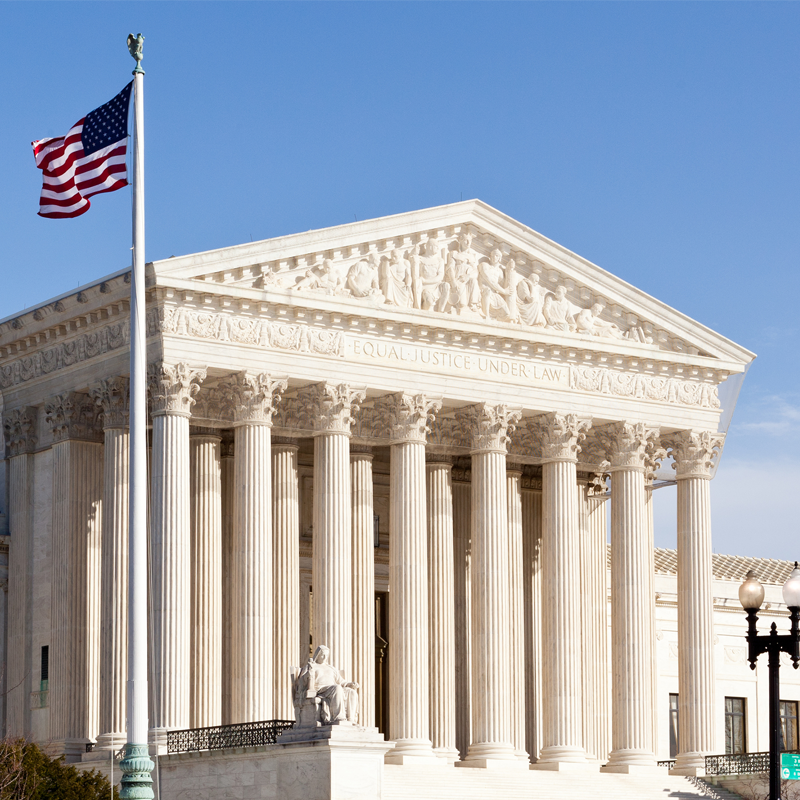
The Mandan, Hidatsa, and Arikara Nation and Native voters Cesar Alvarez and Lisa Deville, submitted an amicus brief to defend Section 2 of the Voting Rights Act in the U.S. Supreme Court review of Louisiana v. Callais (consolidated with Robinson v. Callais), a challenge to a fair district map that the Louisiana legislature enacted after Black Louisianans proved that the previous state redistricting map illegally diluted Black votes. The Native voters and MHA Nation filed an amicus brief to defend federal laws that protect voters from gerrymandering and allow the U.S. to conduct fair democratic elections.
The Native voters and MHA Nation are no strangers to this type of litigation, having defended a North Dakota legislative subdistrict in Walen v. Burgum. Section 2 of the VRA requires elected officials to consider and to respect political boundaries, such as Tribal Nation reservation boundaries, when drawing new district lines to ensure that communities within distinct political boundaries have a fair chance to elect representation of their choice. To comply with Section 2, the North Dakota Legislature created a new state legislative subdistrict—North Dakota House District 4A—that aligned with the political boundaries of the MHA Nation and that gave MHA voters an opportunity to elect their candidate of choice. The Walen v. Burgum lawsuit sought to eliminate District 4A, but alongside the state of North Dakota, the Native voters and MHA Nation successfully rebuffed that challenge before the district court. The MHA subdistrict win now also stands before the U.S. Supreme Court, where shockingly, the North Dakota Attorney General has asked the Court to throw out the legal victory that upheld the subdistrict.
“Like the Black voters advocating for a fair election map in Louisiana, Native voters in North Dakota have also had to file lawsuit after lawsuit to vindicate their right to vote. For many Americans, this unending civil rights struggle requires fighting in the courts for legal redistricting maps that allow their votes to count,” said Native American Rights Fund Staff Attorney Lenny Powell.
In their Callais amicus brief submitted on December 26, 2024, the Tribal Nation and Native voters, represented by NARF and the Campaign Legal Center, explain why the Court should reverse the Callais district court’s decision concluding that Louisiana’s current congressional map is an unconstitutional racial gerrymander. The brief points out that the U.S. Supreme Court already rejected similar claims by elected officials in Allen v. Milligan in 2023. The MHA and Native voter’s brief also rebuffs mischaracterizations in another amicus brief filed in the Louisiana case by 12 states that attempts to radically rewrite both the Native voter’s legal victory in Walen v. Burgum and the very meaning of Section 2 of the Voting Rights Act.
“This case is an attempt to strip Black voters in Louisiana of their right to equal representation. When a minority group is continually denied the opportunity to elect its chosen candidates, then our democracy cannot be said to be truly inclusive of all voters regardless of race or ethnicity,” said CLC Senior Vice President Bruce Spiva.



